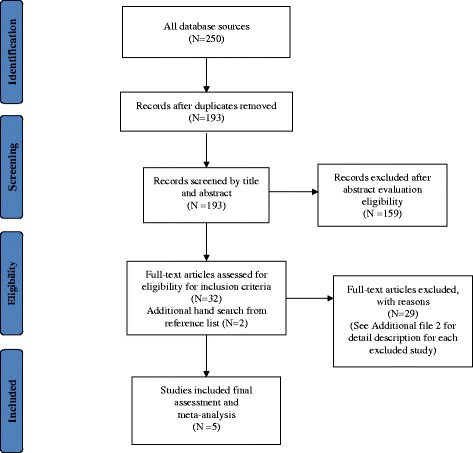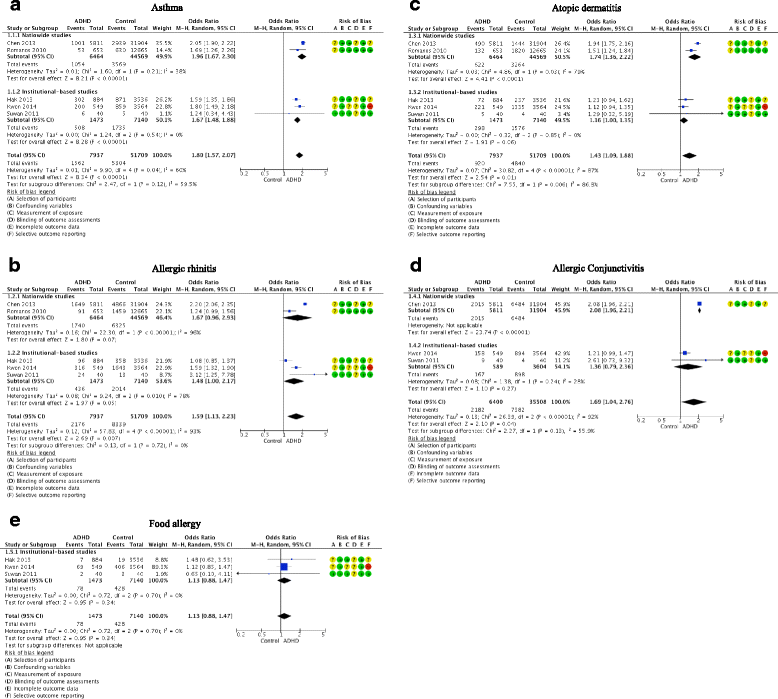Allergic diseases in children with attention deficit hyperactivity disorder: a systematic review and meta-analysis
- PMID: 28359274
- PMCID: PMC5374627
- DOI: 10.1186/s12888-017-1281-7
Allergic diseases in children with attention deficit hyperactivity disorder: a systematic review and meta-analysis
Abstract
Background: Reports of frequent manifestation of allergic diseases in children with attention deficit hyperactivity disorder (ADHD) have been the subject of mounting clinical interest. However, evidence supporting the association between ADHD and allergies is inconsistent and has yet to be systematically reviewed. The objective of this study was to compile and assess available studies on the association between ADHD and allergic diseases in children.
Methods: A comprehensive search using MEDLINE, EMBASE, the Cochrane library, and CINAHL databases was completed in 23 November 2015. The inclusion criteria for studies were that the research assessed allergic diseases in children, 18 years of age and younger, with a diagnosis of ADHD and that a distinct comparison group was incorporated. Any comparative studies, encompassing both randomized controlled trials and observational studies, were considered for inclusion. Two review authors independently assessed the quality of the selected studies by the use of validated assessment tools, performed data extraction and conducted meta-analysis according to Cochrane Collaboration guidelines.
Results: Five eligible studies were included in this systematic review. Of these studies, three were case-control and two were cross sectional studies. A majority of information from the five studies was classified as having low or unclear risk of bias. The meta-analysis showed an association between children with ADHD and asthma compared with the control groups (OR: 1.80, 95% CI: 1.57 - 2.07; five studies, low quality of evidence), but did not indicate an association between food allergy and ADHD (OR: 1.13, 95% CI: 0.88 - 1.47; three studies very low quality of evidence). The odds of experiencing allergic rhinitis, atopic dermatitis, and allergic conjunctivitis were slightly higher in children with ADHD compared with control groups, though a substantial statistical heterogeneity was notable in the overall effect estimates.
Conclusions: The findings from this review and meta-analysis show that children with ADHD are more likely to have asthma, allergic rhinitis, atopic dermatitis, and allergic conjunctivitis than their counterparts. Interventions including strategies for managing allergies in children with ADHD would be beneficial.
Keywords: Allergic conjunctivitis, Allergic disease, Allergic rhinitis, Asthma, Atopic dermatitis, Attention deficit hyper disorder, Coexisting condition, Food allergy, Meta-analysis.
Figures
References
-
- American Psychiatric Association . Diagnostic and statistical manual of mental disorders 5th ed. Washington: American Psychiatric Association Press; 2013.
Publication types
MeSH terms
LinkOut - more resources
Full Text Sources
Other Literature Sources
Medical



